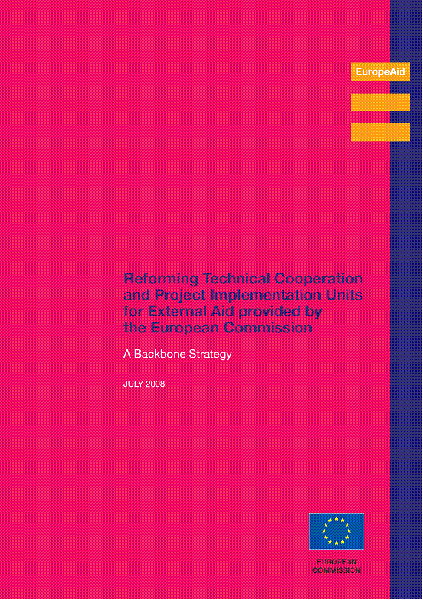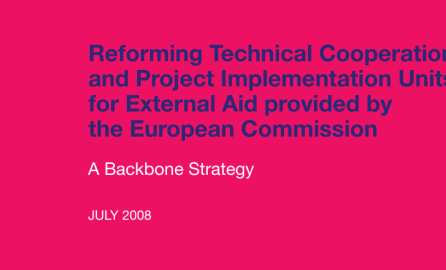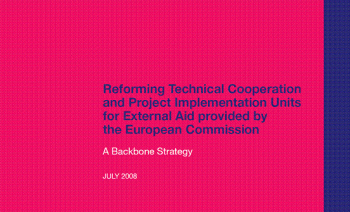
The impact of Technical cooperation (TC) delivery in Mozambique is unsatisfactory and strategic and coordinated planning of TC is urgent required. This, in a nutshell, is the general consensus that came out of a series of meetings attended in March 2009 by Ms Manzitti, with EC Delegation staff, EU Member States and represtative of the government of Mozambique. Reacting positively to the presentation of the Backbone Strategy, the EC Delegation highlighted the challenges and opportunities it faces in improving the delivery of technical cooperation in the context of the EU TC reform.
The latest Performance Accountability Framework (PAF) indicates that only 18% of the TC provided in Mozambique is coordinated and two recent and comprehensive studies provide a critical diagnostic of capacity development and TC in the country. On average donors spend 25% of overseas development assistance on technical assistance but no reliable information exists on what it achieves. Strategic planning and monitoring is limited and there are significant imbalances across sectors.
A recent study (1) asked if the way in which donors provide capacity development support is hindering progress. That question is now up for debate, and donors appear ready to address it.
A presentation of the Backbone Strategy to the different stakeholders on the ground produced a generally cautious response.
The government of Mozambique drew attention to the tensions provoked by the huge gap between salaries of the civil servants and the international technical assistants, which they said created an obstable to the ownership of TA.
On the part of the EU, Member States representatives from Sweden, Belgium, France, Netherlands, Finland and Portugal agreed that TC support in Mozambique is not satisfactory and features a lack of coordination, including at the EU level. The issue of how to mobilise public expertise was also raised. As a result of the discussions, the Member States agreed to launch an "EU mapping exercise" to plot all technical cooperation, building on an existing EC grid (annex C - EAMR, January 2009).
The EC delegation responded positively to the Backbone Strategy. Open discussions provided interesting feedback on the overall TC reform process, both on policy and on procedural aspects.
The recent TC mapping carried out by the Delegation provides interesting data and confirms that TC provision will be high on the Delegation agenda in the coming months and years. The inventory of "significant" TC operations scheduled to start in 2009 includes nine programmes amounting to a total of E24 M.
However, TC is so far "resistant" to change and not in line with the Paris and the AAA commitments, according to attending EC Delegation representatives. They countered that the Mozambique government has limited capacity to plan and lead its own strategy of capacity development. Successful peer-to-peer support and exchange of practices that are developing TC with other governments may provide some interesting lessons.
Transport and Governance are the two areas of work identified for an "advanced" application of the Backbone Strategy and respectively two sector events have been scheduled for the end of 2009 to launch the process.
However, areas of concern highlighted by the Delegation include: how to mobilise southern and lusophone expertise, how to frame support to the National Authorising Office and, in the same vein, how to design support to the implementation of regional programmes (PALOC).
"The NAO system has been traditionally underperforming in Mozambique", the Delegation said, "and we would highly appreciate to exchange on positive experiences with other Delegations and access more detailed guidance". The examples of Tanzania and Madagascar were evoked. The EC Delegation insisted on the fact that Headquarters should promote action in this area at risk of "anti-Backbone practices", including management of local staff and top-up practices.
"Headquarters' support to the implementation of the Backbone Strategy at country level is useful and can significantly facilitate change of practices and of mindset," the Delegation concluded. "Headquarters should invest more in this area and compile lessons learned in order to fine-tune its support to country needs."
1) "Strengthening Capacity Development Support Programes" (Scan team - 2006) and V. Hauk and Souto (2007) "Provision of TA personnel in Mozambique".





Log in with your EU Login account to post or comment on the platform.